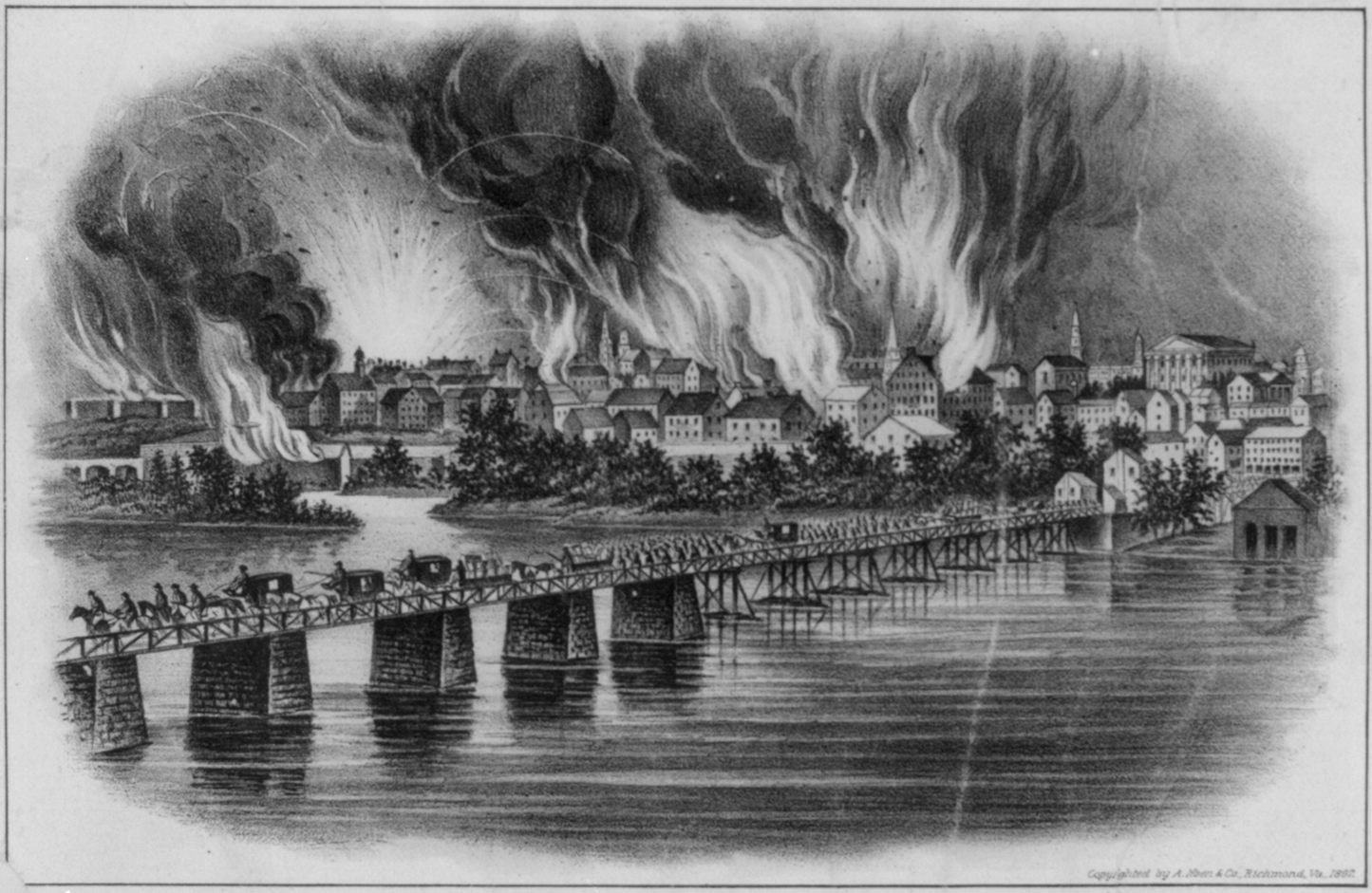RECENT COMMENTS

“Evacuation of the Capital of the Confederacy as Seen by a Boy”
Mike Gorman’s excellent Civil War Richmond has an account by a boy from Church Hill of the fall of Richmond one hundred and fifty years ago in April 1865:
Confirmed hunger, almost to the point of starvation, had made many of the middle and poorer classes of the population indifferent. Some of them reasoned, and wisely, too, that the incoming of Uncle Sam’s men in blue would mean food for the hungry, if nothing more. Our family, for instance, had existed more than ten days on black-eyed peas alone, without salt, pepper or meat to flavor them. The sameness of this diet had become awful, until each individual pea seemed in my exaggerated vision as large as an orange. The bill of fare in our home had become “browned peas for breakfast; boiled peas for dinner, and cold peas for supper,” and never a bite of bread to break the dietary monotony.
Richmond became as quiet as a graveyard after midnight, and until 4 o’clock on the morning of April 2, 1865, naught disturbed the stillness, save the occasional baying of lanky, half-starved dogs. This quietness was ominous to the fast fading Confederacy. Our family occupied a dwelling on Grace street, Church Hill, overlooking the James River at Rocketts, where the principal piers and wharfage were located. Lying at those wharfs on Sunday afternoon were a number of Government tugboats and the ancient side-wheeled gunboat, Patrick Henry. Several thousand yards west of Rocketts were two magazines containing tons of gunpowder. It was the explosion of these which suddenly awakened the Confederate Capital from its slumbers and brought a scene of excitement and activity out of one of lethargy.
HT/ Tricia Noel






12 RESPONSES